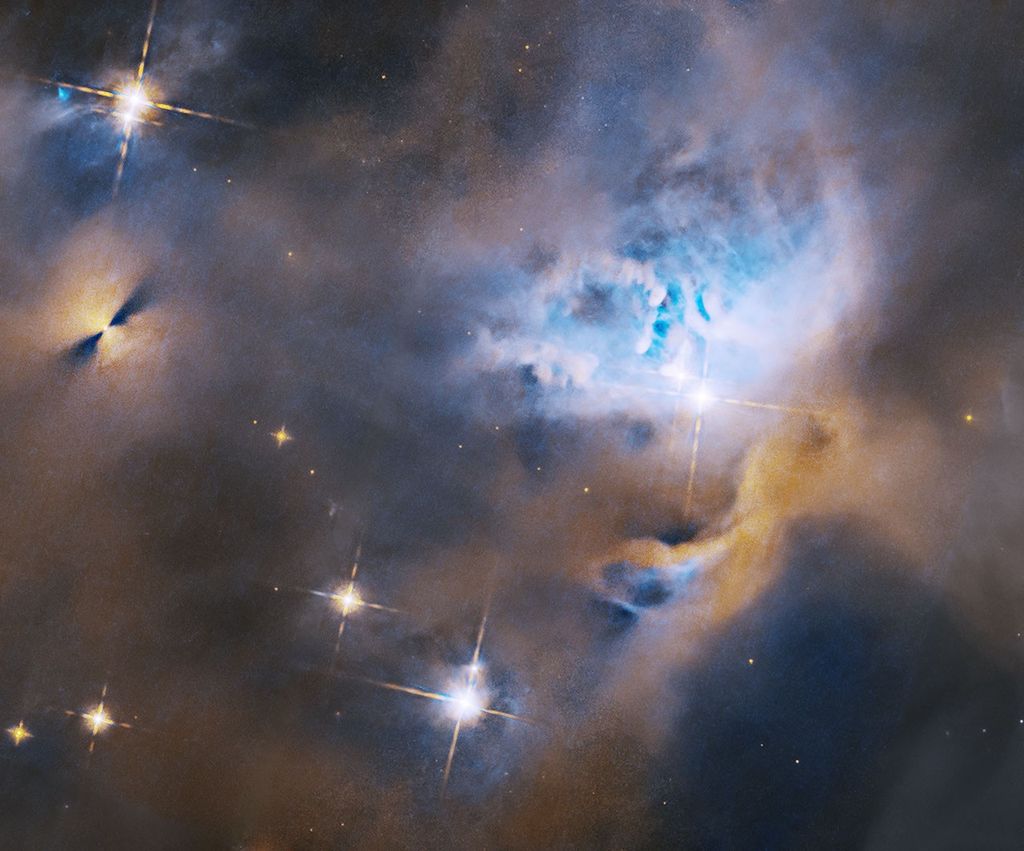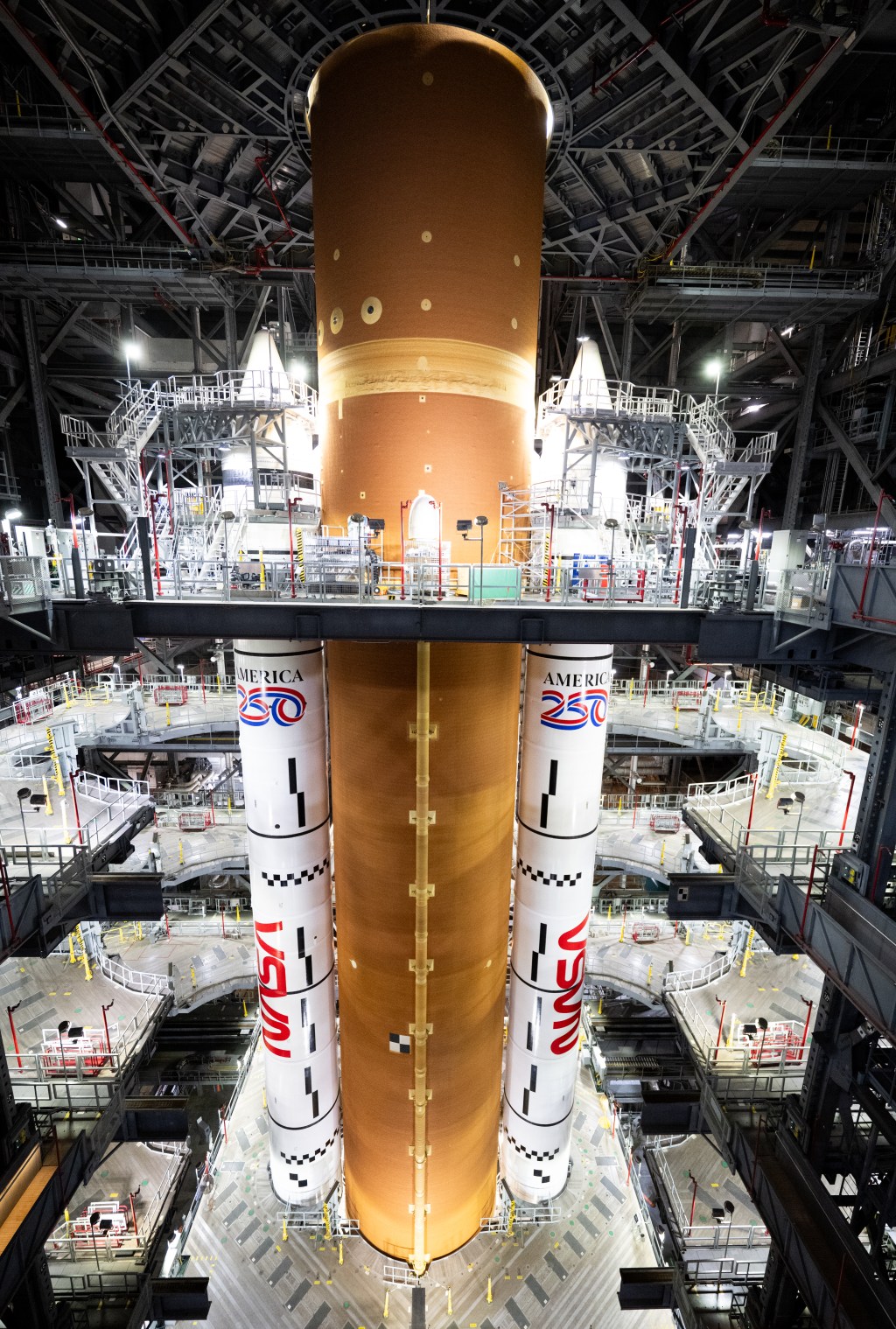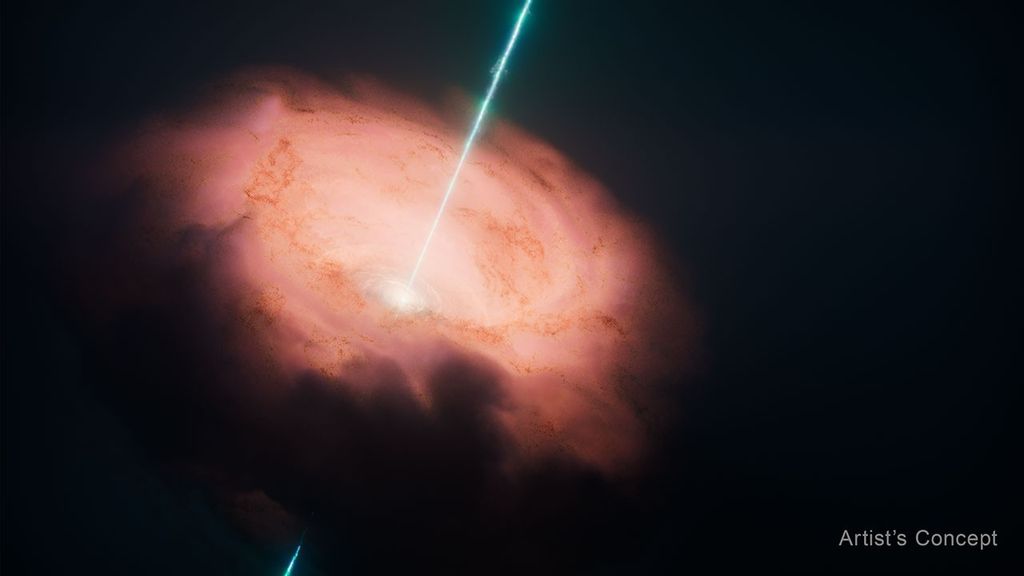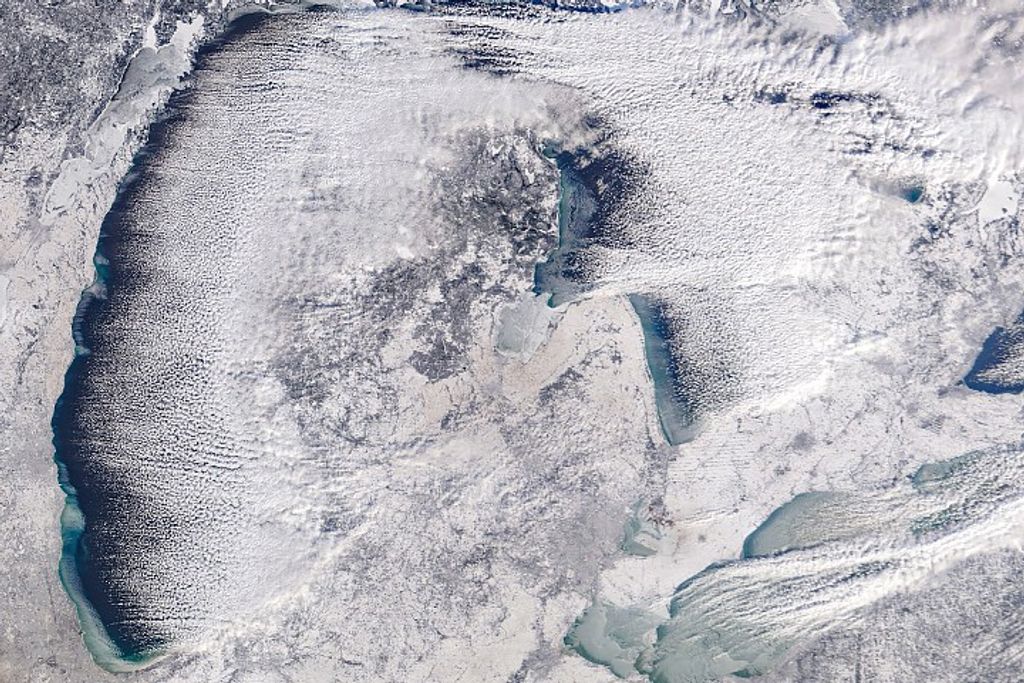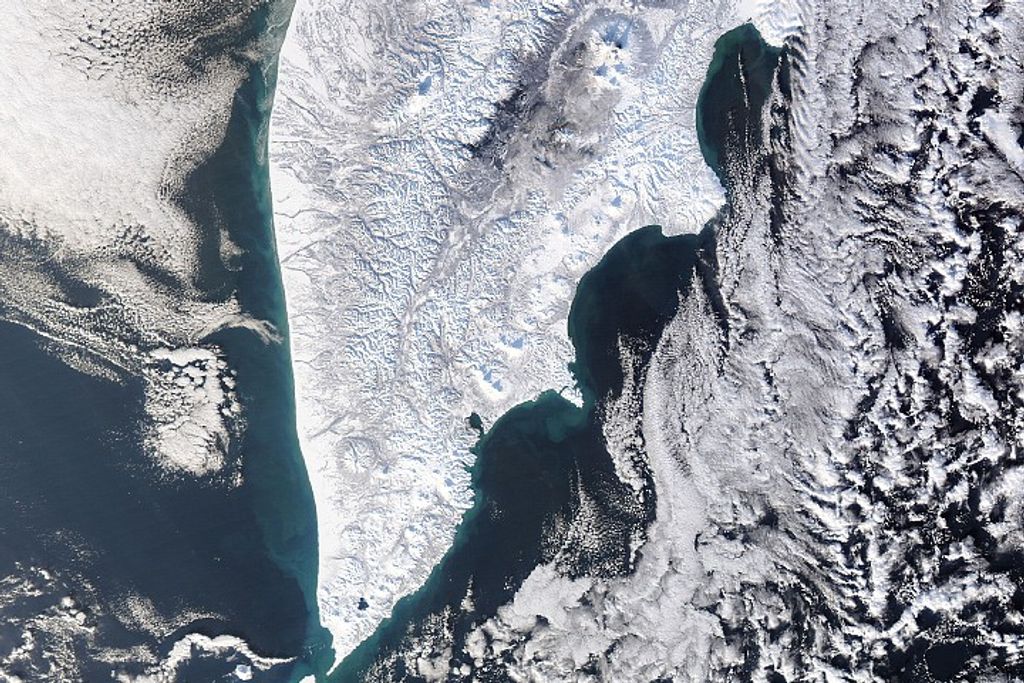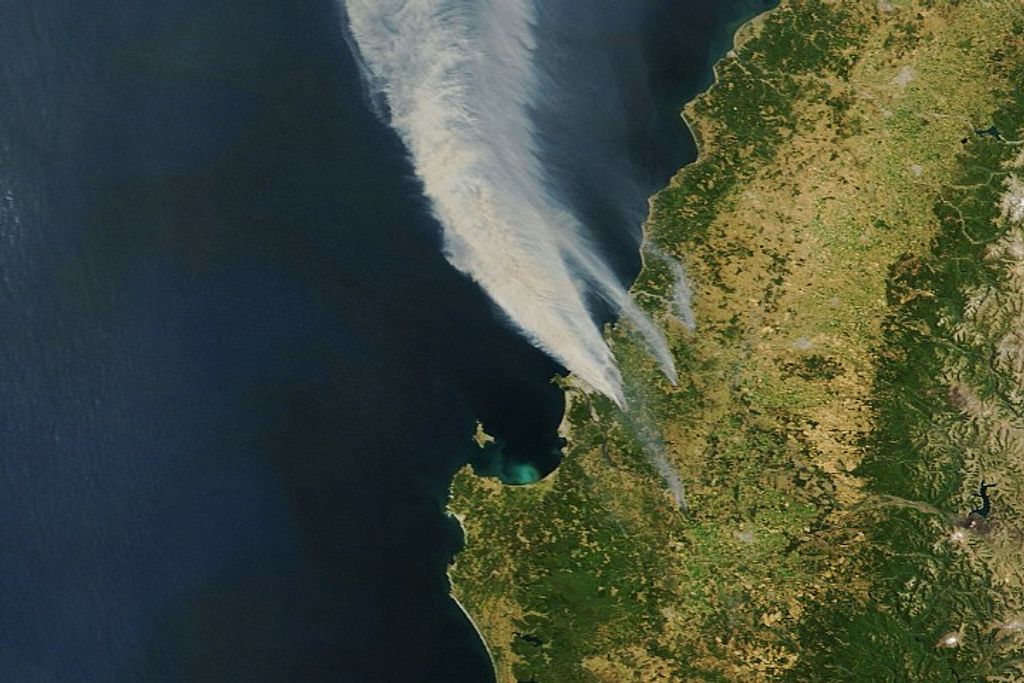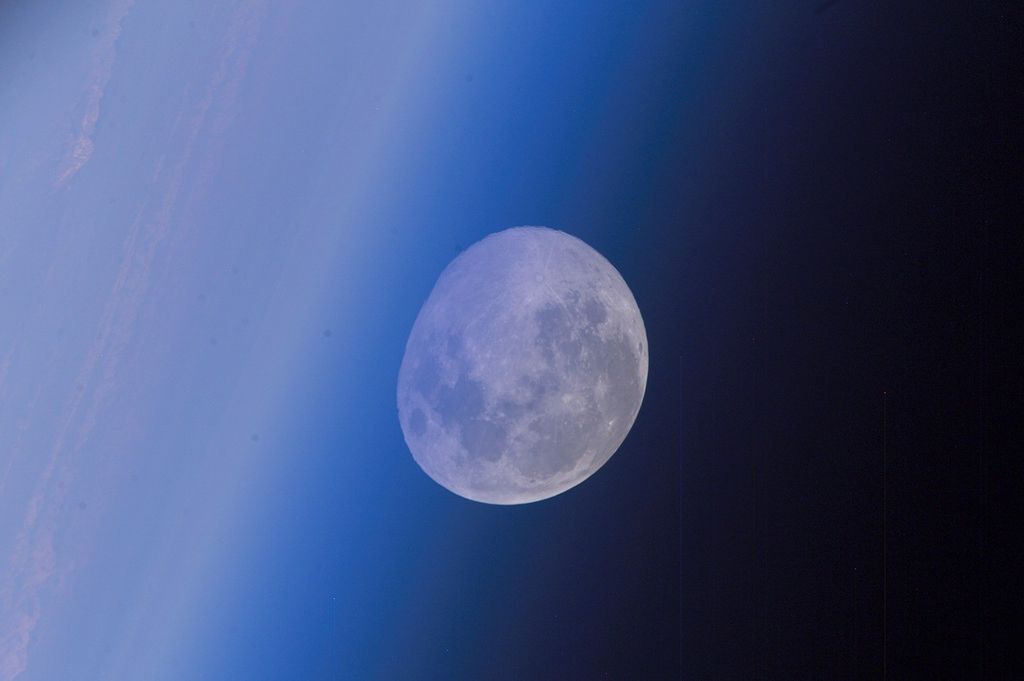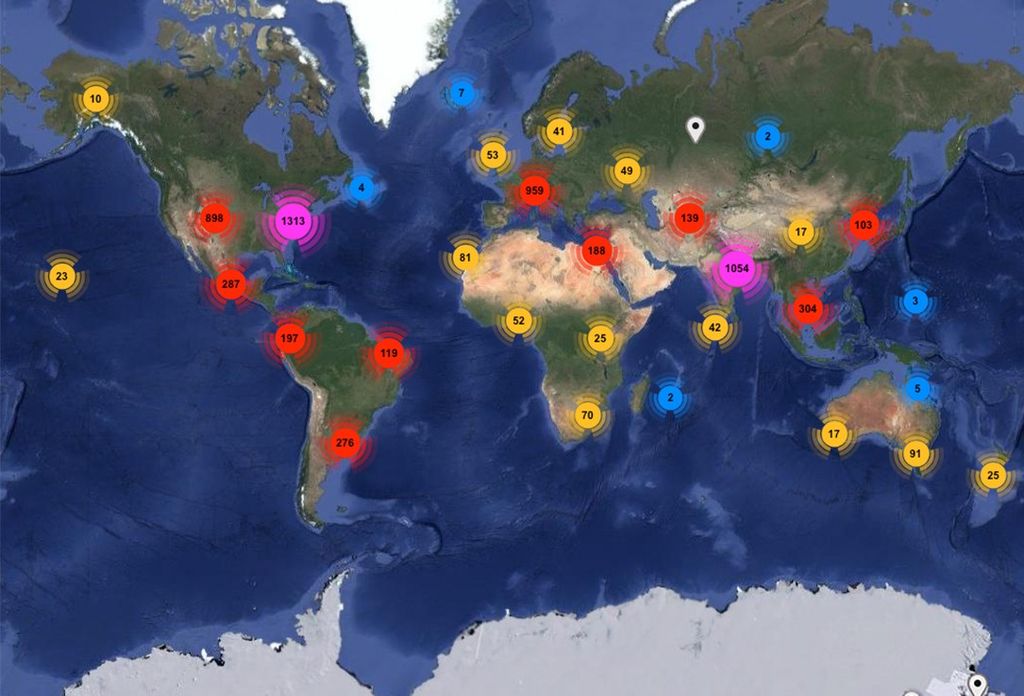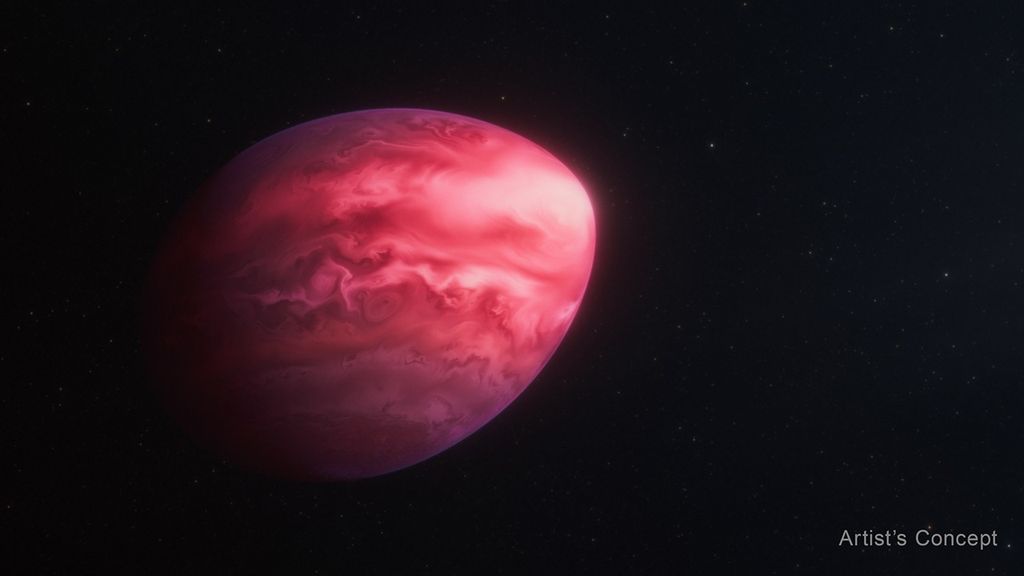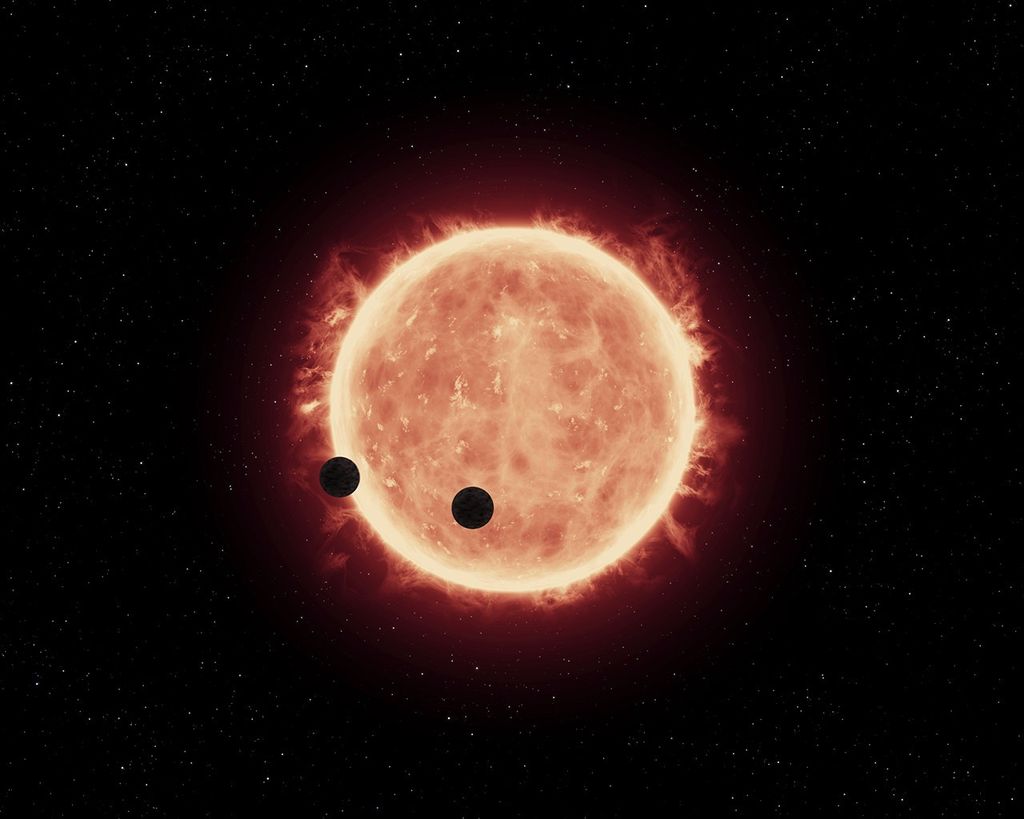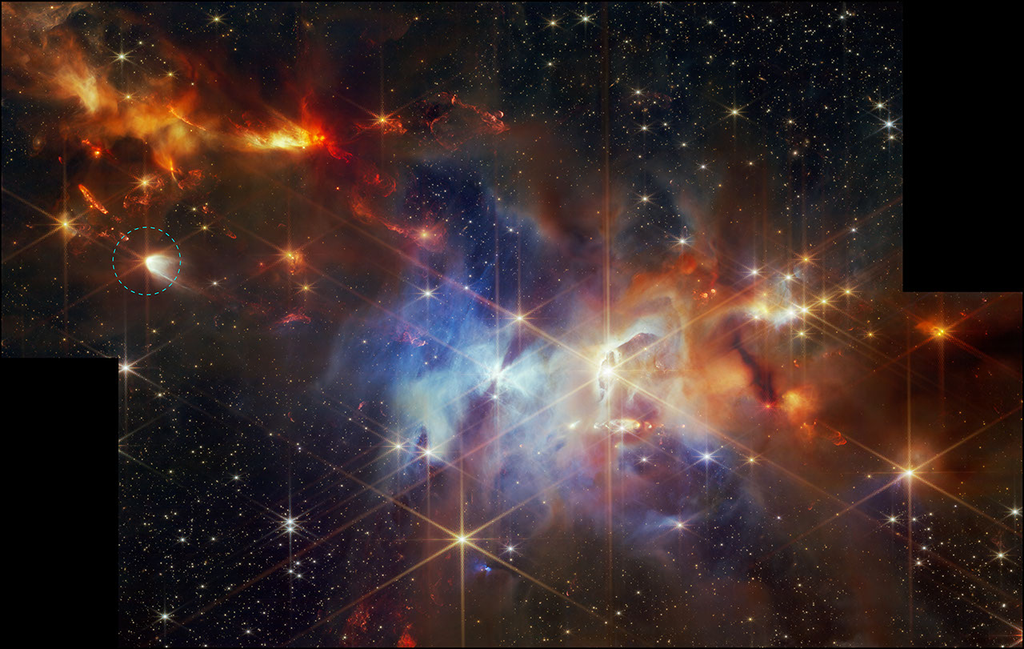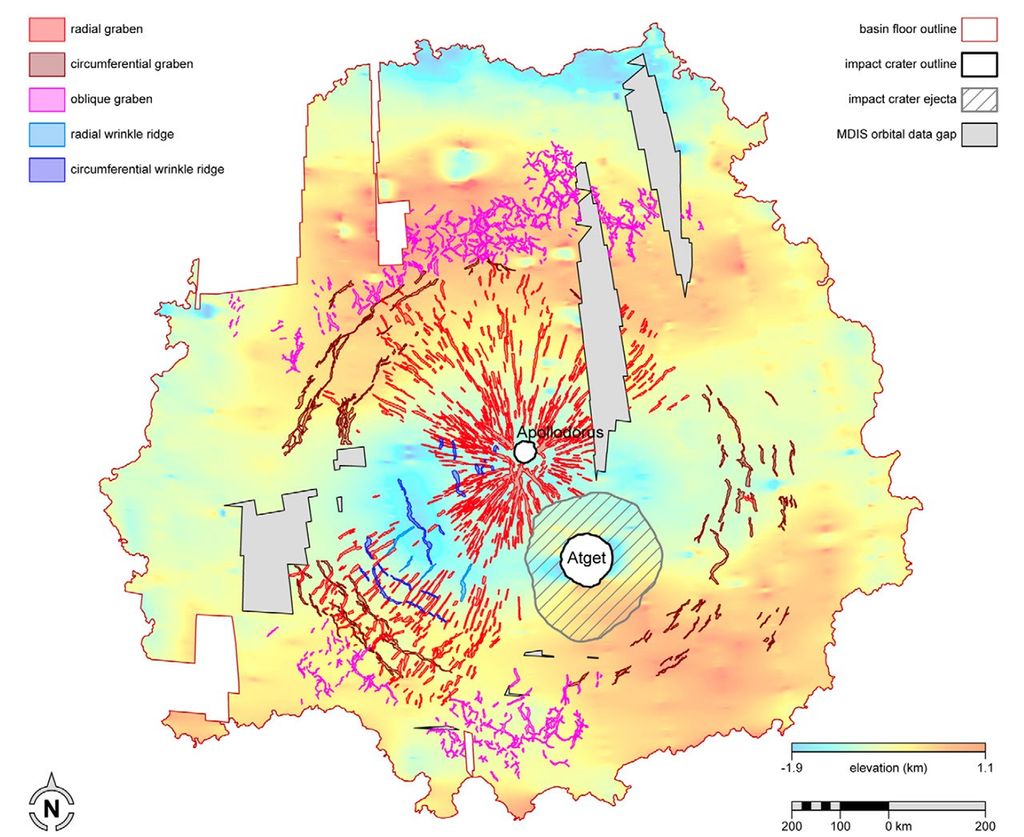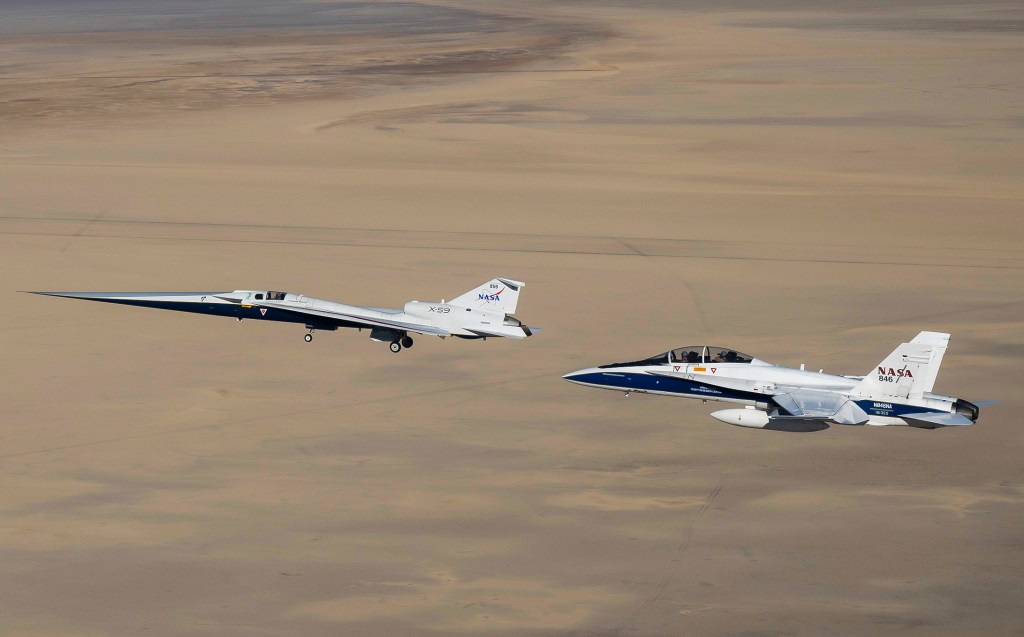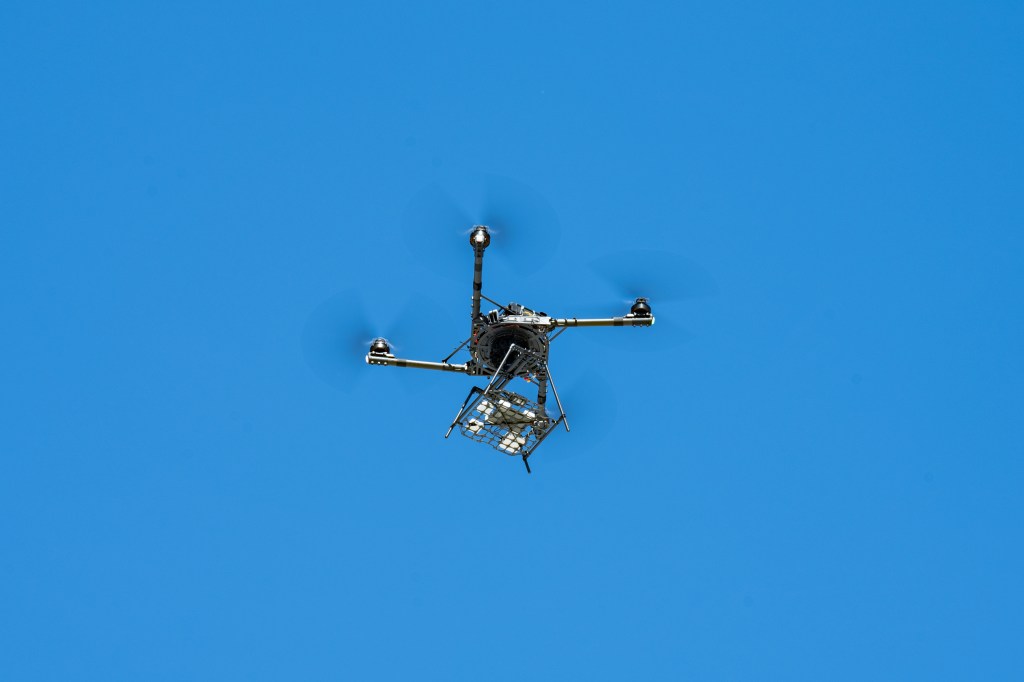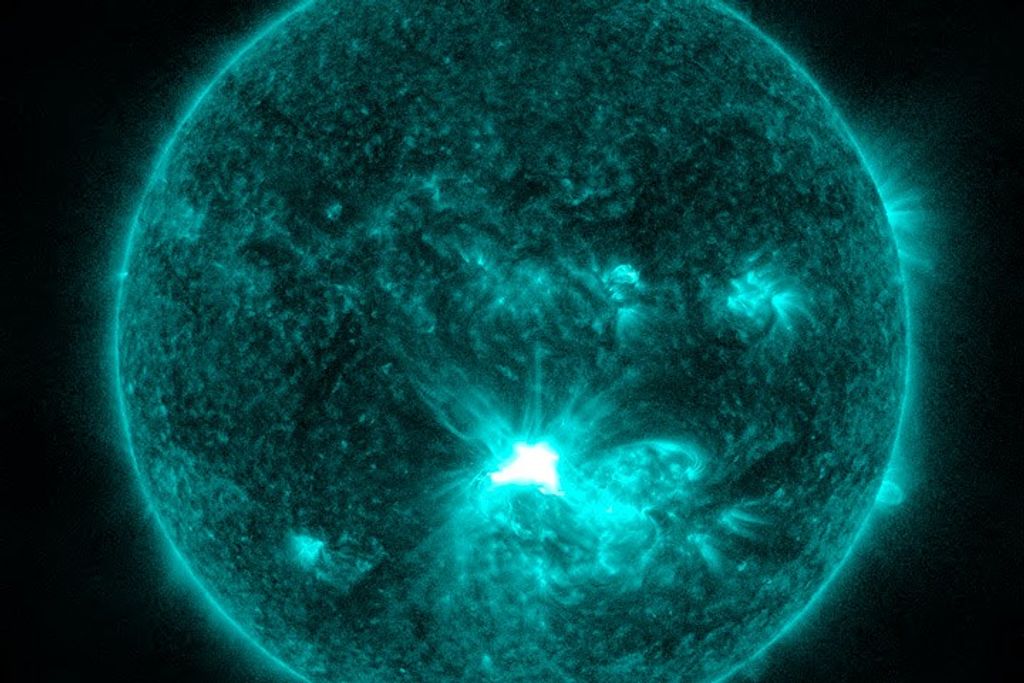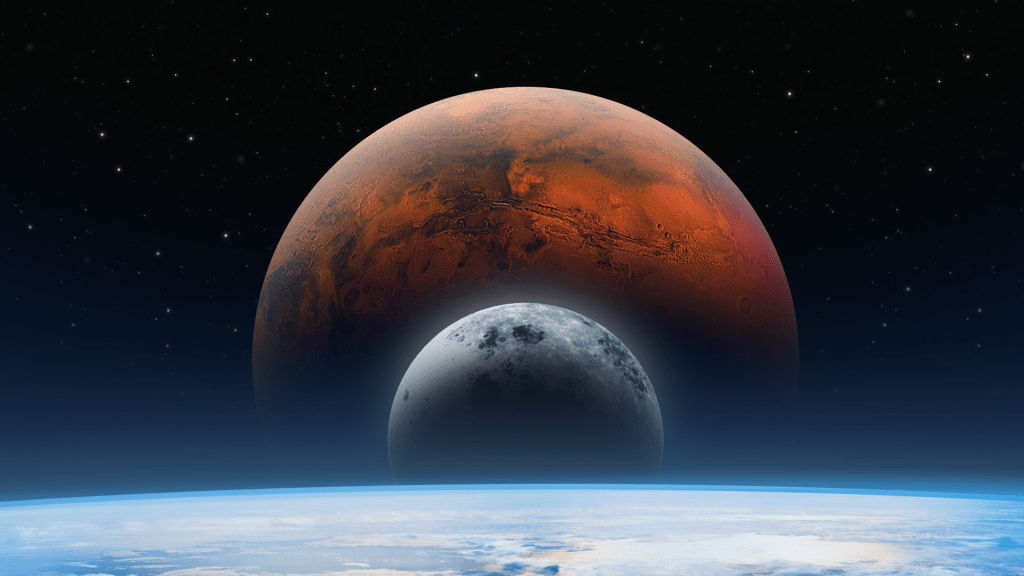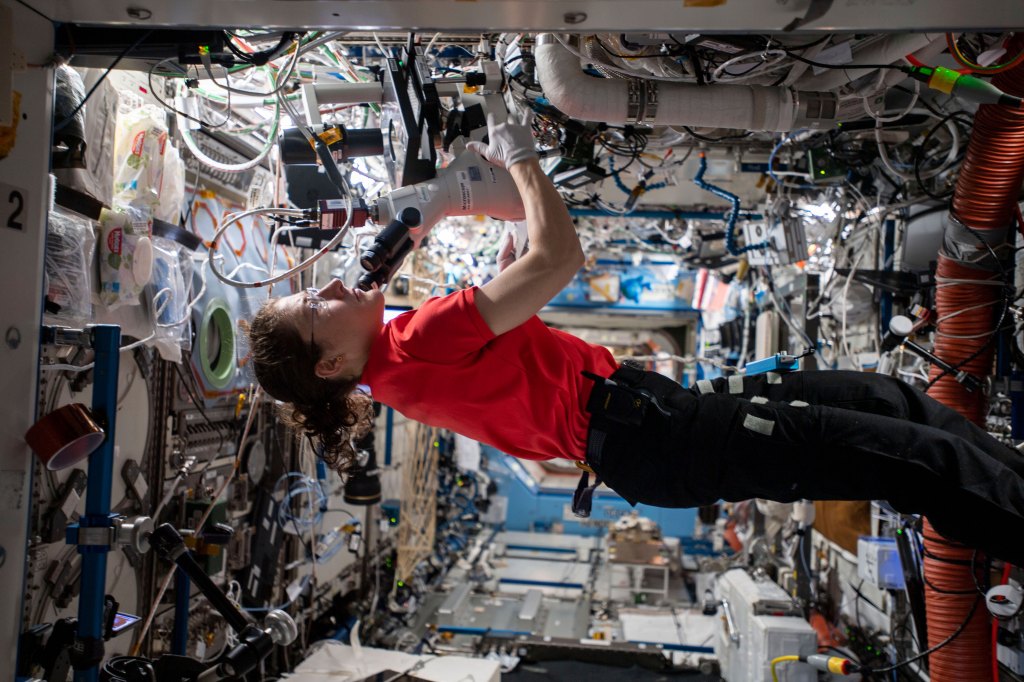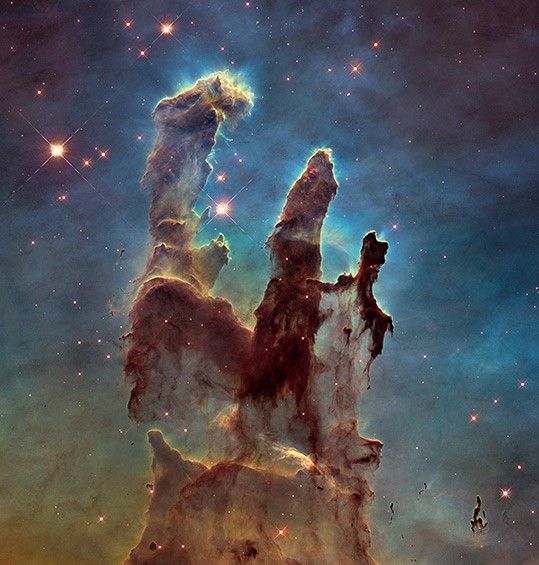1 min read
The Hubble Ultra Deep Field

This view of nearly 10,000 galaxies is called the Hubble Ultra Deep Field. The snapshot includes galaxies of various ages, sizes, shapes, and colors. The smallest, reddest galaxies may be among the most distant known, existing when the universe was just about 800 million years old. The nearest galaxies - the larger, brighter, well-defined spirals and ellipticals - thrived about 1 billion years ago, when the cosmos was 13 billion years old. The image required 800 exposures taken over the course of 400 Hubble orbits around Earth. The total amount of exposure time was 11.3 days, taken between Sept. 24, 2003 and Jan. 16, 2004.
About the Object
- R.A. PositionR.A. PositionRight ascension – analogous to longitude – is one component of an object's position.03h 32m 39.99s
- Dec. PositionDec. PositionDeclination – analogous to latitude – is one component of an object's position.-27° 48' 0.0"
- ConstellationConstellationOne of 88 recognized regions of the celestial sphere in which the object appears.Fornax
About the Data
- Data DescriptionData DescriptionProposal: A description of the observations, their scientific justification, and the links to the data available in the science archive.
Science Team: The astronomers who planned the observations and analyzed the data. "PI" refers to the Principal Investigator.The science team for this release is: R. Bouwens and G. Illingworth (University of California, Santa Cruz), J. Blakeslee (Washington State University), and M. Franx (Leiden Observatory). This image was created from HST data from the following proposal: 9978: HUDF Team (STScI). The science teams are: • A.J. Bunker (Univ.of Exeter U.K./ Inst. of Astrophysics, Univ. of Cambridge, U.K.), E.R. Stanway (Inst. of Astrophysics, Univ. of Cambridge, U.K.), R.S. Ellis (California Inst. of Tech.), and R.G. McMahon (Inst. of Astrophysics, Univ. of Cambridge, U.K.) • H. Yan (Spitzer Science Center, California Inst. of Tech.) and R.A. Windhorst (Arizona State Univ.) • M. Stiavelli, S.M. Fall, and N. Panagia (STScI) • R.J. Bouwens and G.D. Illingworth (Univ. of California, Santa Cruz), R.I. Thompson (Steward Obs./Univ. of Arizona), J.P. Blakeslee (Johns Hopkins Univ.), M.E. Dickinson (National Optical Astronomy Obs.), T.J. Broadhurst (The Hebrew Univ., Israel), D.J. Eisenstein and X. Fan (Steward Obs./Univ. of Arizona), M. Franx (Leiden Observatory, Netherlands), G. Meurer (Johns Hopkins Univ.), and P. van Dokkum (Yale Univ.) • S. Malhotra, J.E. Rhoads, N. Pirzkal and C. Xu (Space Telescope Science Inst.) - InstrumentInstrumentThe science instrument used to produce the data.HST>ACS/WFC
- Exposure DatesExposure DatesThe date(s) that the telescope made its observations and the total exposure time.September 24, 2003 - January 16, 2004, Exposure Time: 11.3 days
- FiltersFiltersThe camera filters that were used in the science observations.F435W (B), F606W (V), F775W (i), F850LP (z)
- Object NameObject NameA name or catalog number that astronomers use to identify an astronomical object.HUDF, Hubble Ultra Deep Field
- Release DateSeptember 21, 2006
- Science ReleaseNASA’s Hubble Finds Hundreds of Young Galaxies in Early Universe
- Credit

Color Info
Color InfoA brief description of the methods used to convert telescope data into the color image being presented.
Blue: F435W (B) Green: F606W (V) + F775W (i) Red: F850LP (z)

Compass and Scale
Compass and ScaleAn astronomical image with a scale that shows how large an object is on the sky, a compass that shows how the object is oriented on the sky, and the filters with which the image was made.
Related Images & Videos
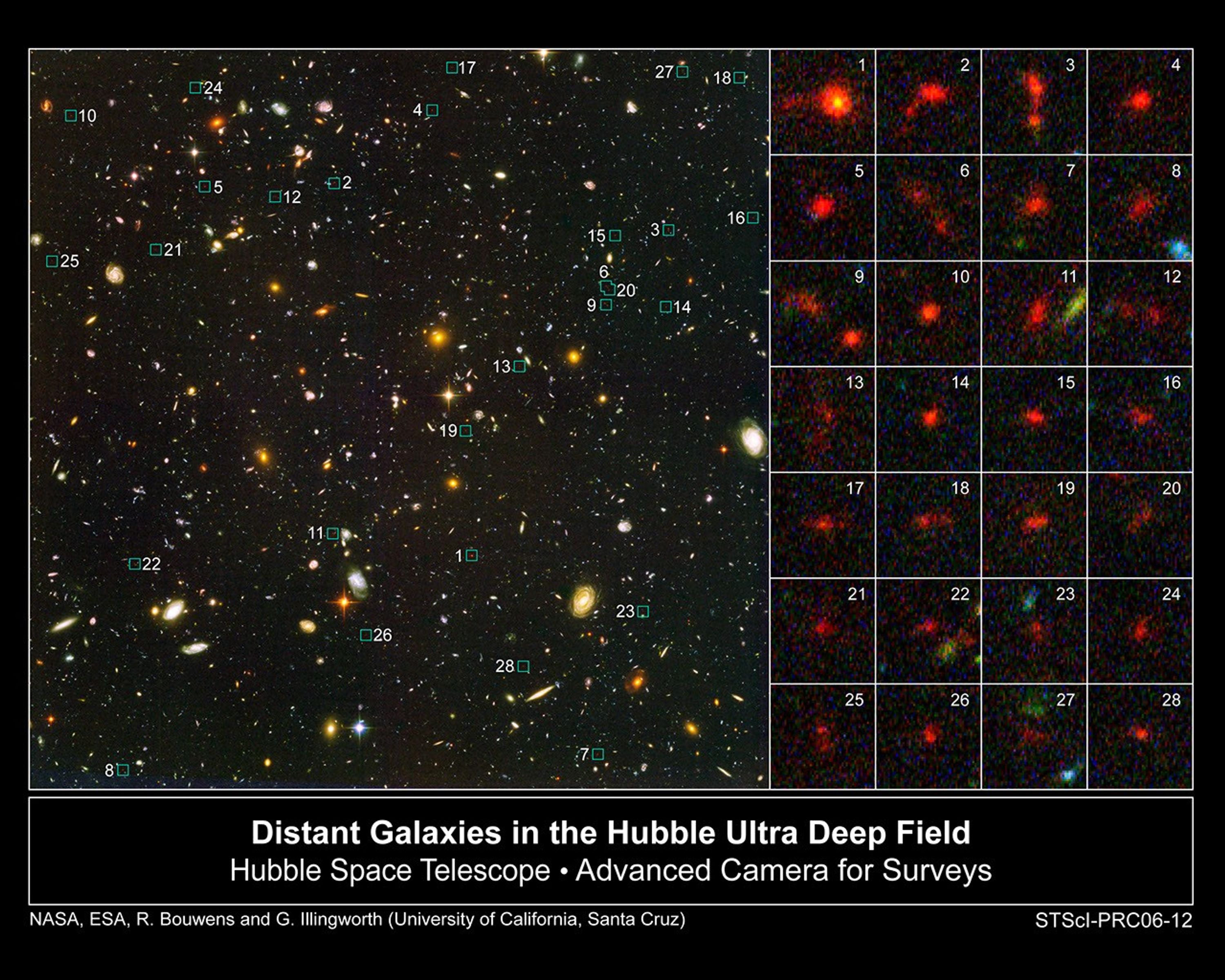
Distant Galaxies in the Hubble Ultra Deep Field
This Hubble Space Telescope image shows 28 of the more than 500 young galaxies that existed when the universe was less than 1 billion years old. The galaxies were uncovered in a study of two of the most distant surveys of the cosmos, the Hubble Ultra Deep Field (HUDF), completed...

Individual Galaxy Details
Astronomers analyzing two of the deepest views of the cosmos made with NASA's Hubble Space Telescope have uncovered a gold mine of galaxies, more than 500 that existed less than a billion years after the Big Bang. These galaxies thrived when the cosmos was less than 7 percent of...
Share
Details
Last Updated
Aug 17, 2025
Contact
Media
Claire Andreoli
NASA’s Goddard Space Flight Center
Greenbelt, Maryland
claire.andreoli@nasa.gov

